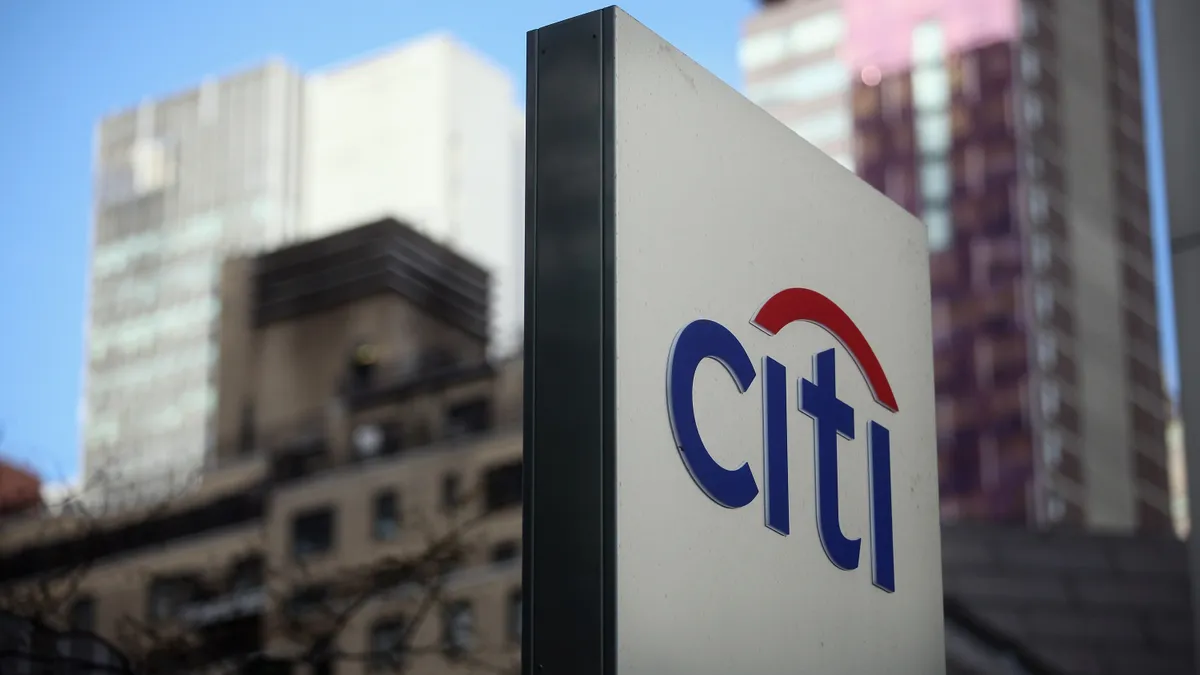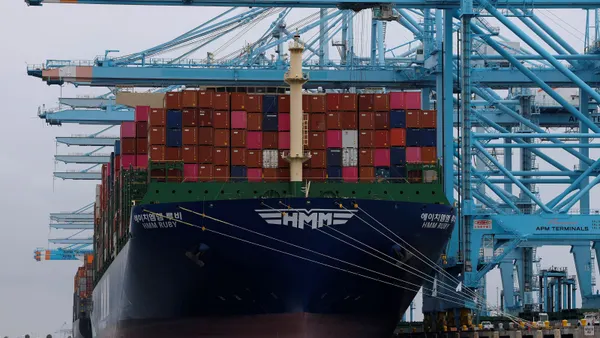Dive Brief:
- Companies are mulling geopolitical risks and strategizing around the potential impacts the outcome of elections will have for them, Citigroup CFO Mark Mason said Monday, speaking at the Barclays 22nd Annual Global Financial Services Conference in New York City.
- While the “boil” appears to be coming off inflation and there is more clarity that interest rates are on track to come down, questions around what will happen with elections, inflation and rates are still driving discussions that the bank is having with its clients, he said.
- Many clients are examining how they can “derisk their funding plans” in light of some of the uncertainty, and there is also “a lot of discussion around the different policy views around different sectors like energy, healthcare, consumer, and what the results of an election might mean for those sectors,” Mason said, noting that investments in AI and M&A are also being discussed.
Dive Insight:
CFO agility and scenario planning abilities — challenged in recent years by the COVID-19 pandemic, Silicon Valley Bank’s failure and war in Ukraine and the Middle East — are facing a new test in the wake of the July shakeup of the U.S. Presidential election slate that has ratcheted up domestic geopolitical risk and uncertainty, CFO Dive previously reported.
Mason’s talk came one day ahead of Tuesday night’s presidential debate, which is expected by many to be a high-stakes showdown between former President Donald Trump and Vice President Kamala Harris in their race for the White House.
It could give businesses and finance leaders a fresh opportunity to learn more about the candidates’ economic stances. So far, corporate and personal taxes, trade and tariffs and the Federal Reserve are among the top business issues that have differentiated Harris and Trump.
For his part, Mason did not specify any candidates by name while speaking at the conference, nor did he specify which “national elections” he was referring to. Asked by Jason Goldberg, a Barclays senior equity research analyst and moderator, about the macro-economic outlook in the U.S. and globally, Mason said “uncertainty persisted” going into the summer, be it inflation, rates or the pending election, even as inflation eased and there was more clarity on rates.
But he expressed confidence in central banks’ ability to take the “necessary action” as more data comes out and signaled optimism that a recession could be avoided.
“Net-net, our economists are calling for a 50 basis point reduction in the next two cuts and then a 25 basis point [reduction], so three between now and the end of the year, and then continued reduction into 2025 and a relatively soft landing,” Mason said. “So, we feel pretty good about the resiliency and strength of corporate and consumer balance sheets at this point.”
Separately, in the quarter, Mason said the bank is continuing to see “good” M&A and debt capital market activity and expects investment banking fees to be up about 20% year-over year. He also described a mixed picture when it comes to the consumer side of the business, specifically with regard to credit card customers.
Delinquencies have picked up, he said, and spending is shifting from discretionary purchases to “staple-type” purchases, with the size of the discretionary purchases also declining even as the bank is seeing spend growth from affluent customers.
“There's a dichotomy, if you will, between the higher FICO score and the lower FICO score customers,” he said.














